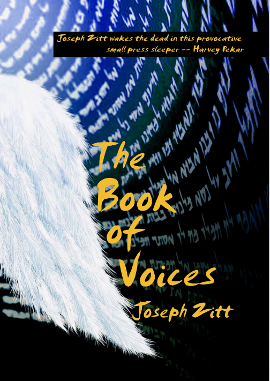Sarah’s life, viewed as presented in the Biblical text, was a difficult one. She spent much of her early life continually on the move. Abraham lied about her repeatedly, putting her in danger from the kings of the territories through which they passed. Having desperately wanted a child, she didn’t bear a son until she was extremely old, only to see that child overshadowed by Abraham’s older son, Ishmael, then sent off to his death by his father’s hand, dashing her dreams of the chain of descendants that she had been promised. It’s unclear whether she got to know that Isaac survived, since her death is reported immediately after the attempted sacrifice. Is it any wonder that she might have been bitter?
Here, however, she is not only given a glimpse of her life as it might have been, but a chance to experience that better life. Finally leaving Abraham (though without his ever knowing that she did), she moves on to a long life as a teacher and mother-figure to generations of prophets.
This was the next-to-last piece written for the initial edition of book. While working on the Elisheva interludes, I realized that I needed to establish more background for her school of prophets. Looking for context, I discovered that having Sarah involved made sense. After a while, I realized that I was thinking of the school as the Sisters of Sarah, without having consciously decided to call them that.
But the opening image of the piece was one of the first conceived. As I described in the piece on Abraham, I had been thinking of a stage piece on his life and Sarah’s. The opening image of that piece would have been that of Sarah sitting alone outside her tent, waiting for Abraham to return.
Sarah returns in Elisheva’s story, and Miriam‘s own story is told later on, in events that, though later in our common timeline of history, occur before this story as Miriam experienced the flow of time.
Questions
What do you see when you imagine your life as it might have been? Does it differ from what you are living now? Is there still a way to get to that imagined life? How might you incorporate aspects of that imagining into your life as it has really happened? Or has your life actually turned out to be better and more fulfilling that you had imagined that it would become?


Recent Comments